Whenever I talk to my friends about basic life skills we should all know, I will undoubtedly hear one of them say, “I wish they taught us that in school!” Me, too. I wish I was taught more practical skills that I now use on a daily basis, like how to create a budget, work with people to find a compromise, and effectively problem-solve. However, schools are not set up in future-oriented ways, and students often graduate with a set of oddly specific and not very useful skills.
The Future is made of soft skills
Many of the skills needed for a successful future are called soft skills; some examples of these include good communication, collaboration, and active listening. While it is difficult to explicitly teach traits that are often considered naturait is possible to create situations and assignments that allow students to practice and hone their soft skills. However, most schools aren’t doing this. So, if schools aren’t teaching our students the soft skills they need to have a successful future, what are they learning about all day?
Students are learning an outdated curriculum.
Each school district equips its teachers with a list of state-mandated learning standards and a corresponding curriculum that they are expected to work through for the duration of the school year. While this seems like a smart, streamlined process that allows all school stakeholders to know what is being taught in each classroom, the rigidity of this system does not make it easy on teachers to add group activities and discussion-based assignments to their instruction, which would help students gain and practice soft skills.
Additionally, many of the state-provided curricula are outdated or use materials that are literally falling apart, and the implications of this create a subpar learning environment that teaches students irrelevant information. Outdated curriculum and unusable materials do not inspire a classroom of future-minded thinkers, and it is inhibiting student success.
They are learning how to take a test.
It is now the month of May, which means it is testing time for many school districts across the country. In subjects that require an end-of-the-year test, your child has been learning information for the purpose of passing this test, whether the information is relevant or useful to their future selves.
The reason for this teach-to-the-test mentality is unsettling – teachers are evaluated and “graded” on their effectiveness based on how well their students perform on these tests. Because of this, there is no real motivation to facilitate activities that promote soft skills and deep learning.t. If school districts rid themselves of high-stakes testing, teachers would be more inclined to include soft skills instruction in their classroom instruction, and students would be better equipped to enter adulthood.
They are learning that the system doesn’t work in their favor.
Students know and understand that sitting in a classroom for almost eight hours a day shouldn’t be normal. They watch the adults in their life not using many of the classes they took in high school and wonder why nothing significant has changed in education since their parents graduated.
Their concerns are valid. Out of all the systems that have undergone drastic changes in modern America, education is not one of them. In fact, most of our schools function the same way as they did during the Industrial Revolution – students work bell-to-bell to learn a set of skills that will benefit them as future factory workers.
While there is nothing wrong with factory work, factories do not take up as much space in the workforce as they once did. Even though our workforce has changed, the way we equip students for the future hasn’t. Our students are smart enough to figure this out and know something needs to change before they graduate high school.
Giant Leaps equips future leaders with the skills they need to succeed.
Though schools may not equip your children with the necessary skills for future success, Giant Leaps Learning does. Giant Leaps has found what we believe is the gap in education, and part of that gap is the lack of real-world applications in schools.
We use individualized, meaningful curriculum to promote student engagement, and each student is paired with a Student Success Coach that will guide them through the program. All learning modules provide opportunities for written communication, verbal communication, creative thought, and adaptability, all of which are important soft skills crucial to your child’s future success. If you are interested in learning more, schedule a one-on-one consultation today!





